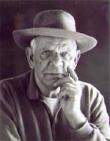Jack Leonard Davis grew up at Yarloop, Western Australia. His mother was forcibly removed from her parents, and Davis himself later discovered the details of her family history. Sent to the Moore River Native Settlement to learn farming at the age of 14, Davis' experiences there would later provide a foundation for his dramatic writing. After nine months, he left the Settlement. His father's subsequent death created a family crisis, which led to the first of many jobs for Davis. He has worked as a stockman, boxer, horse-breeder, train driver and truck driver.
While living at the Brookton Aboriginal Reserve, Davis started to learn the language and culture of his people. He was the Director of the Aboriginal Centre in Perth from 1967 to 1971 and became the first Chair of Aboriginal Lands Trust in Western Australia in the same year.
His writing spans the genres of drama, poetry, short fiction, autobiography and critical material, and reflects a lifelong commitment to Aboriginal activism. His work explores such issues as the identity problems faced by Aboriginal youth in contemporary society, the wider sense of loss experienced in Aboriginal cultures, and the clash of Aboriginal and White law.
Davis has won numerous awards and honours, including the The Order of the British Empire - Medal (Civil) in 1976, the Bicentennial BHP Award for the Pursuit of Excellence in literature and the arts in 1988 and the Swan Gold Theatre Award in 1990. Some of his poems were set to music by Chester Schultz in 1984, and he has also received honorary doctorates from Murdoch University and the University of Western Australia.
Jack Davis also made a significant contribution to Aboriginal literary life as a cultural activist and administrator. In the 1980s, he co-founded the Aboriginal Writers, Oral Literature and Dramatists' Association, was a member of the council of the Australian Institute of Aboriginal Studies and the Aboriginal Arts Board. Davis was named a Living Treasure in 1998.
Jack Davis' sister Dot Collard appeared in his play 'No Sugar', which was a great success and was performed in Vancouver for the Expo '86.
 325767021180615990.jpg
325767021180615990.jpg

